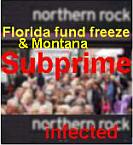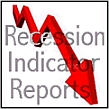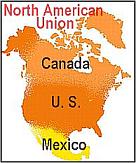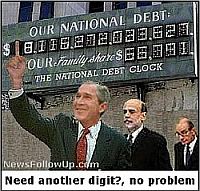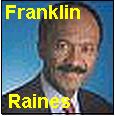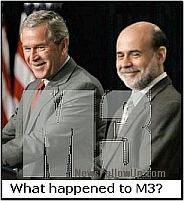|
Pursuant to your request, I will attempt to clear up questions you
have about the Federal Reserve Bank (FED). I spent much time researching
the FED and these are the shocking and revealing conclusions.
THE FEDERAL RESERVE BANK IS A PRIVATE COMPANY.
Article 1, Section 8 of the Constitution states that Congress shall have
the power to coin (create) money and regulate the value thereof. Today
however, the FED, which is a privately owned company, controls and
profits by printing money through the Treasury, and regulating its
value.
The FED began with approximately 300 people or banks that became owners
(stockholders purchasing stock at $100 per share – the stock is not
publicly traded) in the Federal Reserve Banking System. They make up an
international banking cartel of wealth beyond comparison (Reference 1,
14). The FED banking system collects billions of dollars (Reference 8,
17) in interest annually and distributes the profits to its
shareholders.
The Congress illegally gave the FED the right to print money (through
the Treasury) at no interest to the FED. The FED creates money from
nothing, and loans it back to us through banks, and charges interest on
our currency. The FED also buys Government debt with money printed on a
printing press and charges U.S. taxpayers interest. Many Congressmen and
Presidents say this is fraud (Reference 1,2,3,5,17).
Who actually owns the Federal Reserve Central Banks? The ownership of
the 12 Central banks, a very well kept secret, has been revealed:
Rothschild Bank of London
Warburg Bank of Hamburg
Rothschild Bank of Berlin
Lehman Brothers of New York
Lazard Brothers of Paris
Kuhn Loeb Bank of New York
Israel Moses Seif Banks of Italy
Goldman, Sachs of New York
Warburg Bank of Amsterdam
Chase Manhattan Bank of New York
(Reference 14, P. 13, Reference 12, P. 152)
These bankers are connected to London Banking Houses which ultimately
control the FED. When England lost the Revolutionary War with America
(our forefathers were fighting their own government), they planned to
control us by controlling our banking system, the printing of our money,
and our debt (Reference 4, 22).
The individuals listed below owned banks which in turn owned shares in
the FED. The banks listed below have significant control over the New
York FED District, which controls the other 11 FED Districts. These
banks also are partly foreign owned and control the New York FED
District Bank. (Reference 22)
First National Bank of New York
James Stillman National City Bank, New York
Mary W. Harnman
National Bank of Commerce, New York
A.D. Jiullard
Hanover National Bank, New York
Jacob Schiff
Chase National Bank, New York
Thomas F. Ryan
Paul Warburg
William Rockefeller
Levi P. Morton
M.T. Pyne
George F. Baker
Percy Pyne
Mrs. G.F. St. George
J.W. Sterling
Katherine St. George
H.P. Davidson
J.P. Morgan (Equitable Life/Mutual Life)
Edith Brevour T. Baker
(Reference 4 for above, Reference 22 has details, P. 92, 93, 96, 179)
How did it happen? After previous attempts to push the Federal Reserve
Act through Congress, a group of bankers funded and staffed Woodrow
Wilson’s campaign for President. He had committed to sign this act. In
1913, a Senator, Nelson Aldrich, maternal grandfather to the
Rockefellers, pushed the Federal Reserve Act through Congress just
before Christmas when much of Congress was on vacation (Reference 3, 4,
5). When elected, Wilson passed the FED. Later, Wilson remorsefully
replied (referring to the FED), “I have unwittingly ruined my country”
(Reference 17, P. 31).
Now the banks financially back sympathetic candidates. Not surprisingly,
most of these candidates are elected (Reference 1, P. 208-210, Reference
12, P. 235, Reference 14, P. 36). The bankers employ members of the
Congress on weekends (nickname T&T club -out Thursday…-in Tuesday) with
lucrative salaries (Reference 1, P. 209). Additionally, the FED started
buying up the media in the 1930′s and now owns or significantly
influences most of it Reference 3, 10, 11, P. 145).
Presidents Lincoln, Jackson, and Kennedy tried to stop this family of
bankers by printing U.S. dollars without charging the taxpayers interest
(Reference 4). Today, if the government runs a deficit, the FED prints
dollars through the U.S. Treasury, buys the debt, and the dollars are
circulated into the economy. In 1992, taxpayers paid the FED banking
system $286 billion in interest on debt the FED purchased by printing
money virtually cost free (Reference 12, P. 265). Forty percent of our
personal federal income taxes goes to pay this interest. The FED’s books
are not open to the public. Congress has yet to audit it.
Congressman Wright Patman was Chairman of the House of Representatives
Committee on Banking and Currency for 40 years. For 20 of those years,
he introduced legislation to repeal the Federal Reserve Banking Act of
1913.
Congressman Henry Gonzales, Chairman of a banking committee, introduces
legislation to repeal the Federal Reserve Banking Act of 1913 nearly
every year. It’s always defeated, the media remains silent, and the
public never learns the truth. The same bankers who own the FED control
the media and give huge political contributions to sympathetic members
of Congress (Reference 12, P. 155-163, Reference 22, P. 158, 159, 166).
THE FED FEARS THE POPULATION WILL BECOME AWARE OF THIS FRAUD AND DEMAND
CHANGE
We, the People, are at fault for being passive and allowing this to
continue.
Rep. Louis T. McFadden (R. Pa.) rose from office boy to become cashier
and then President of the First National Bank in Canton Ohio. For 12
years he served as Chairman of the Committee on Banking and Currency,
making him one of the foremost financial authorities in America. He
fought continuously for fiscal integrity and a return to constitutional
government (Reference 1). The following are portions of Rep. McFadden’s
speech, quoted from the Congressional Record, pages 12595-12603:
“THE FEDERAL RESERVE BOARD, A GOVERNMENT BOARD, HAS CHEATED THE
GOVERNMENTOF THE UNITED STATES AND THE PEOPLE OF THE UNITED STATES OUT
OF ENOUGH MONEY TO PAY THE NATIONAL DEBT.
The depredations and the iniquities of the Federal Reserve Board and the
Federal Reserve banks acting together have cost this country ENOUGH
MONEY TO PAY THE NATIONAL DEBT SEVERAL TIMES OVER.”
About the Federal Reserve banks, Rep. McFadden said, “They are private
credit monopolies which prey upon the people of the United States for
the benefit of themselves and their foreign customers; foreign and
domestic speculators and swindlers; the rich and predatory money
lenders. This is an era of economic misery and for the reasons that
caused that misery, the Federal Reserve Board and the Federal Reserve
banks are fully liable.”
On the subject of media control he state, “Half a million dollars was
spent on one part of the propaganda organized by those same European
bankers for the purpose of misleading public opinion in regard to it.”
Rep. McFadden continued, “Every effort has been made by the Federal
Reserve Board to conceal its power but the truth is the Federal Reserve
Board has USURPED THE GOVERNMENT OF THE UNITED STATES. IT CONTROLS
EVERYTHING HERE AND IT CONTROLS ALL OUR FOREIGN RELATIONS. IT MAKES AND
BREAKS GOVERNMENTS AT WILL.
No man and no body of men is more entrenched in power than the arrogant
credit monopoly which operates the Federal Reserve Board and the Federal
Reserve banks. These evil-doers have robbed this country of more than
enough money to pay the national debt. What the Government has permitted
the Federal Reserve Board to steal from the people should now be
restored to the people.”
“Our people’s money to the extent of $1,200,000,000 has within the last
few months been shipped abroad to redeem Federal Reserve Notes and to
pay other gambling debts of the traitorous Federal Reserve Board and the
Federal Reserve banks. The greater part of our monetary stock has been
shipped to foreigners. Why should we promise to pay the debts of
foreigners to foreigners? Why should American Farmers and wage earners
add millions of foreigners to the number of their dependents? Why should
the Federal Reserve Board and the Federal Reserve banks be permitted to
finance our competitors in all parts of the world?” Rep. McFadden asked.
“The Federal Reserve Act should be repealed and the Federal Reserve
banks, having violated their charters, should be liquidated immediately.
FAITHLESS GOVERNMENT OFFICERS WHO HAVE VIOLATED THEIR OATHS SHOULD BE
IMPEACHED AND BROUGHT TO TRIAL”,
Rep. McFadden concluded (Reference 1, contains an entire chapter on Rep.
McFadden’s speech).
If the media is unbiased, independent and completely thorough, why
haven’t they discussed the FED? Currently, half the states have at least
a grass roots movement in action to abolish the FED, but there’s no
press coverage. In July, 1968, the House Banking Subcommittee reported
that Rockefeller, through Chase Manhattan Bank, controlled 5.9% of the
stock in CBS. Furthermore, the bank had gained interlocking directorates
with ABC.
In 1974, Congress issued a report stating that the Chase Manhattan
Bank’s stake in CBS rose to 14.1% and NBC to 4.5% (through RCA, the
parent company of NBC). The same report said that the Chase Manhattan
Bank held stock in 28 broadcasting firms. After this report, the Chase
Manhattan Bank obtained 6.7% of ABC, and today the percentage could be
much greater. It only requires 5% ownership to significantly influence
the media (Reference 14, P. 56-57). This is only one of 300 wealthy
shareholders of the FED. It is believed other FED owners have similar
holdings in the media. To control the media, FED bankers call in their
loans if the media disagrees with them (Reference 25, P. 134-137).
Rockefeller also controls the Council on Foreign Relations (CFR), the
sole purpose of which is to aid in stimulating greater interest in
foreign affairs and in a one world government. Nearly every major
newscaster belongs to the Council on Foreign Relations. The Council on
Foreign Relations controls many major newspapers and magazines.
Additionally, major corporations owned by FED shareholders are the
source of huge advertising revenues which surely would influence the
media (Reference 14, P. 56-59). It can be no wonder why groups such as
FED-UP(tm) receive minimal, if any, press attention.
How do taxpayers stop financing those whose purpose it is to destroy us?
First, expose their activity, then demand change.
THE SOLUTION:
Currently all we do is exchange FED money (interest attached) for real
U.S. money (interest-free) dollar for dollar as Kennedy tried to do. We
should not be required to pay interest on our own currency. According to
Benjamin Franklin, this was one of the primary reasons we fought the
Revolutionary War. Today we are still fighting the same family of
bankers (Reference 4, Reference 1, P. 211, 212).
The U.S. Government can buy back the FED at any time for $450 million
(per Congressional record). The U.S. Treasury could then collect all the
profit on our money instead of the 300 original shareholders of the FED.
The $4 trillion of U.S. debt could be exchanged dollar for dollar with
U.S. non- interest bearing currency when the debt becomes due. There
would be no inflation because there would be no additional currency in
circulation.
Personal income tax could be cut if we bought back the FED and
therefore, the economy would expand. According to the Constitution,
Congress is to control the creation of money, keeping the amount of
inflation or deflation in check. If Congress isn’t doing their job, they
should be voted out of office. Unfortunately, voters can’t vote the FED
or its Chairman out of office.
If the government has a deficit, we could handle it as Lincoln and
Kennedy did. Print money and circulate it into the economy, but this
time interest-free. Today the FED, through foreign banks, owns much of
our debt and therefore controls us. The FED will cease to exist as
taxpayers become informed and tell other taxpayers. The news media and
Congress will have no choice but to meet the demands of grass roots
America. (Reference 1, P. 17, 22)
AMERICA DECEIVED
By law (check the Congressional record), we can buy back the FED for the
original investment of the FED’s 300 shareholders, which is $450 million
(Reference 1, P. 227, Reference 17, P. 36). If each taxpayer paid $25,
we could buy back the FED and all the profit would flow into the U.S.
Treasury. In other words, by Congress allowing the constitutionally
illegal FED to continue, much of your taxes go to the shareholders of
the FED and their bankers.
Note: The people who enacted the FED started the IRS, within months of
the FED’s inception.
The FED buys U.S. debt with money they printed from nothing, then
charges the U.S. taxpayers interest. The government had to create income
tax to pay the interest expense to the FED’s shareholders, but the
income tax was never legally passed (Reference 20 shows details,
state-by-state why it was not legally passed). The FED is illegal, per
Article 1, Section 8 of the United States Constitution. Not one state
legally ratified the 16th Amendment making income tax legal.
Currently, fewer and fewer Americans are being convicted for refusal to
pay income taxes. In IRS jury trials, the jury, by law, must decide if
the law is just. If taxpayers do not believe the law is just, the jury
may declare the accused innocent. Judges are legally bound to inform
juries of their right to determine the fairness of a law. Judges often
do not disclose this information so they can control the court outcome.
Luckily, more and more citizens are becoming informed. If one juror
feels the law is unfair, they can find the defendant innocent (Reference
19). In Utah, the IRS quit prosecuting taxpayers because jurors verdict
is not guilty. Please tell your friends and sit in the next jury.
If we eliminate the FED and uphold the Constitution, we could balance
the budget and cut personal income tax to almost nothing. In
Congressional hearings on September 30, 1941, FED Chairman Eccles
admitted that the FED creates new money from thin air (printing press),
and loans it back to us at interest (Reference 17, P. 93). On June 6,
1960, FED President Mr. Allen admitted essentially the same thing
(Reference 22, P. 164). If you or I did this we would go to jail.
It is time to abolish the FED! Tell your friends the truth and win
America back. We don’t even need to buy back the FED. We only need to
print money the way the Constitution requires, not the new proposed
international money. We want to keep our sovereignty and print real U.S.
money.
Why has Congress allowed the FED to continue? If a Congressperson tries
to abolish the FED, the banks fund the Congressperson’s opponent in the
next election (Reference 17, P. 35). The new Congressperson will
obviously support the FED. When Congresspeople retire, political
campaign funds are not taxed. Get elected and be a millionaire if you
vote right.
By the way, the profit of the FED is not taxed either (Reference 1, 9).
Once America understands, and takes action, Congresspeople will then
gladly abolish the FED. In 1992, Illinois Congressman Crane introduced a
bill, co-sponsored by 40 other Congressman, to audit the FED. This is a
step in the right direction.
America is a great nation. As “We the People” become informed, the media
and Congress will be forced to buy back the FED, balance the budget,
significantly cut taxes, and stop allowing bribes to determine voting
strategies. I have already heard from politicians who claim they will
change their platform to include abolishing the FED if enough people
become informed.
IT IS UP TO YOU TO INFORM THE PEOPLE.
The FED hopes you will be passive and not act on this information. We
believe in grass roots America – we are waking up America. Ultimately,
the battle plan is to inform all Americans and demand change in the
media and Congress. True Americans should run for office and throw out
the politicians who allow this fraud to continue. Congress may refuse to
deal with this issue. That’s why each person needs to go to their local
county/state government with the proper paperwork and ask them to
abolish the FED. With the proper documents, they are legally obligated
to do it.
WE NEED LEADERS TO BEGIN THIS ACTION. WILL YOU HELP?
Consider this fact. Most of the given sources in this booklet show how
the blood line of family bankers who own the FED funded both sides of
all major wars. They created fake colonial money to destroy the
Americans during the Revolutionary War and tried to finance both sides
in the American Civil War. Abraham Lincoln refused and the South
accepted.
Many publications show that these bankers financed World War I, World
War II, and the Russian Revolutionary War, which helped Napoleon, Lenin,
and Hitler come to power. They financed both sides from money created
from nothing and profited greatly. These same bankers created a number
of American depressions to change the U.S. legislation and seize our
wealth. Read the sources for details. This is why our forefathers wrote
in the Constitution that only Congress can issue money – not private
banks (Reference 18).
More wars create more debt which means more profit to the bankers
(Reference 1, 21). These bankers planned three world wars so people
would welcome United Nations intervention to govern the world in peace,
not war. (Reference 22 gives specific details on World War I and World
War II, showing exactly how the bankers were responsible for the
beginning and continuation of these wars for their profit).
The banks have publicly announced they will force us to a cashless
society by 1997. Furthermore, they plan to create a one world government
through the United Nations headed by the FED, Trilaterals, and the
Council on Foreign Relations (Reference 3). By the definition of
treason, they have committed treason! This means you lose your rights
under the Constitution and Bill of Rights.
Does this sound far fetched? Twenty-four U.S. Senators (two of them
presidential candidates, Harkin & Tsongas) and 80 Representatives have
signed a “Declaration of Interdependence.” This Declaration, designed to
make a one world government, is treason to the oath of office they took.
The media remained silent.
The FED announced publicly that their first objective was to get
nationalism out of the American people’s heads because patriotism to a
country would not be of value in the future. The media makes us think
the U.N. has all the answers, and to “think globally.” Congress passed a
law stopping certain individuals from being tried for this treason
(Reference 6, Reference 1, P. 191-198).
Why pass this law if no treason was committed? State Department document
7277 calls for the disarming of America, thus turning our sovereignty
over to a one-world government. Again, the media is pushing to eliminate
guns. Our forefathers believed that the right to bear arms would prevent
a takeover of our government. History shows that before any government
took over, they disarmed the citizens. Hitler did it, and before our
Revolutionary War, King George told us to disarm – good thing we didn’t!
Under the Federal Reserve Bank Act, the bankers control our economy. The
FED controls interest rates and the amount of money in the economy.
These factors determine either economic prosperity or the lack thereof.
Bankers are now pushing for a one world government and a cashless
society. Why cashless? No cash means no money for drugs, no theft, and
the ability to collect taxes on the underground economy.
Anyone who wouldn’t support a cashless society must be a drug dealer,
thief, or tax evader, right? What a cashless society really means is the
banks can now control you. Today you fear the IRS. In a cashless
society, if you disagree with the bankers’ political goals, you’ll find
your money gone via computer error. (For additional information on a
cashless society, read Reference 13, P. 174; Reference 3; Reference 14,
P. 9-12; Reference 15, P. 136; Reference 25, P. 216).
If you could accurately predict future interest rates, inflation and
deflation, you would know when to buy or sell stocks and make a bundle
of money. The FED has secret meetings (per Congressional Record) to
determine future interest rates and the amount of money to be printed.
The Securities Exchange Commission (SEC) by law, stops insiders from
profiting by privileged information. Congressional records prove that
FED bankers routinely hold secret meetings to profit by manipulating the
stock market via interest rates and the amount of money they create.
FED bankers also profit greatly from economic disasters like the
Depression (Reference 22, P. 56). The bankers create inflation, sell
their stocks before the market crashes, then buy up stocks at cheaper
prices. Bankers admitted this to Congress. This violates the law, yet
Congress does not act because these bankers are large political
contributors (Reference 17, P. 96-98; Reference 1, P. 162-163; Reference
22, P. 114-170 & P. 136). Thomas Jefferson predicted this scenario if we
ever allowed a private bank, like the FED, to create our currency
(Reference 1, P. 247).
FED Chairman Burns states “Killing can be made simply by knowing the
next few months newspapers ahead of time.” Congressman Patman said “The
FED officials own more than 100 million dollars (of stocks) while making
decisions influencing these stock prices…” (Reference 24, P. 123).
History proves that banks profit from bankrupting a nation (Reference
22, P. 56).
Congress consistently defeats balanced budget amendments. In the past 30
years, Congress has raised our taxes 56 times and balanced the budget
only once. We need the sound banking system our forefathers wanted us to
have. History proves that banking systems like the FED don’t work. Major
world powers have been destroyed over similar banking systems (Reference
1). If we don’t change this system NOW, in five years the only thing our
taxes will pay is the interest on the national debt.
Section 7 of the Federal Reserve Act, passed December 23, 1913, states
that much of the profit of the FED should flow into the U.S. Treasury.
In 1959, new legislation allowed the FED to transfer bonds to commercial
banks at no cost to the bank. Now the FED receives less interest income
and less profit for the U.S. Treasury because the money is diverted to
other banks through an accounting entry (Reference 17, P. 115-130).
Congress and the IRS do not have access to the financial records of the
FED.
Every year Congress introduces legislation to audit the FED, and every
year it is defeated. The FED banking system could easily be netting 100s
of billions in profit each year. Through “creative accounting” profit
can easily be reclassified as expense (Reference 14, P. 20, Reference
17, P. 239). Within the first few years, the shareholders of the FED
received their initial investment back with no risk.
All the income is tax-free, except for property tax, according to the
Federal Reserve Act. When are the profits of the FED going to start
flowing into the Treasury so that average Americans are no longer
burdened with excessive, unnecessary taxes? Clearly, Congress cannot or
will not control the FED. IT IS TIME TO ABOLISH IT!
3 WAYS TO ABOLISH THE FED AND ISSUE MONEY PER THE UNITED STATES
CONSTITUTION, ARTICLE 1, SECTION 8:
* Buy back the FED and have the U.S. Government collect all profits.
* Abolish the FED by printing real U.S. dollars as President Kennedy
attempted (Executive Order 11.110, 1963) (Reference 4).
* Request your county/state to use their Constitutional powers to
abolish the FED. This is the BEST SOLUTION. Nearly half the states are
attempting or considering this action (Reference 5). Congress has had 80
years to follow the Constitution, and has refused to abolish the illegal
FED. The state/county effort is working faster than any other method. We
need your support to start a local chapter of FED-UP(tm) Inc. and
petition your county.
THE WRONG SOLUTION THAT HAS FAILED FOR 80 YEARS:
Congress and the media may want to require the FED to return the
required profits into the U.S. Treasury (per the Federal Reserve Act,
1913). The problem is that with “creative accounting” techniques, profit
can be easily masked as expense. The FED has expensed items illegally to
lower profit (Reference 17).
“We the People” have pushed the following states to pass or introduce
legislation calling for an end to the FED: Arizona, Washington,
Arkansas, Idaho, Oregon, Indiana, and Texas. We still need your
signatures on petitions, even if you live in these states.
Many other states are considering such action due to your petitions.
These states and a few honest Congresspeople are powerless until all
Americans become informed and demand change. Please pass out the
petition. Once we demand change, the media will have to report the whole
truth and not just push their own agenda. FED-UP(tm) challenges the
media to expose the facts on prime time talk shows or news programs.
By abolishing the FED, we would not pay interest on Federal Reserve
Notes. Until it is abolished, the FED has a monopoly on profit on our
currency and whether our money supply will be increased or decreased,
inflation or depression. The banks are capable of controlling business
by controlling who can or cannot obtain a loan.
WE’VE DONE OUR PART – NOW IT IS UP TO YOU TO SPREAD THE WORD. Please
take the brochure (Cutting taxes $6,000 per family per year) to VFW,
Moose/Elk Lodges, Bars, Union Halls, Churches, and Association groups.
Make copies of the “single-page” brochure for everyone at work and ask
your friends to do the same.
Ask small business owners in your community to tell other business
owners and spread the brochure and petition through the local Chamber of
Commerce. CPAs should be interested in saving their clients taxes.
Ask your CPA to mail the brochure and petition out to his/her clients.
Upon receiving this petition, many presidents of large corporations made
this brochure and petition available to all employees. Once people are
informed, we can force a change. People will have more money to spend,
the economy will be strong, and we can keep our Constitutional rights,
liberties, and freedoms.
Contact your library for the names and addresses of your local and
federal Congresspeople. MAIL THEM AN ENVELOPE WITHOUT YOUR NAME AND
ADDRESS ATTACHED. In the envelope, say “FED-UP(tm) Inc. Abolish the
FED.” Also enclose one teabag (Boston Tea Party). Ask your friends to do
the same (give them the addresses). Politicians are aware of the “Teabag
Protest.” If you don’t mail it in, they’re going to believe that we’re
not organized or we just don’t care. IF YOU DON’T DO IT NO ONE ELSE
WILL!
Many Congresspeople want to make this change, but can’t without the
support of the people.
WHY OUR FOREFATHERS FOUGHT THE FED
“Allow me to control the issue and the nation’s money and I care not who
makes its laws!” The above quote has long been attributed to the 18th
century banker Amshell Rothschild (his blood line controls the FED). For
if one unscrupulous group is allowed to print a nation’s money – it can
eventually use that money to gain control of the press AND the
politicians – and thus gain control of making the nation’s laws – and
finally – control of the nation itself. (Reference 4)
If you will take the time to read the reference material listed which
has been researched by Professors of Universities, Congresspeople, etc,
you will turn up information that might frighten you. For instance, in
1921 the stockholders of the Federal Reserve financed an organization
called the “Council on Foreign Relations” (CFR).
Harpers magazine called this the most powerful organization in the
United States. Ninety percent of the people in the State Department and
key positions in the Executive Branch are members of the CFR. The CFR
publishes a magazine called “Foreign Affairs.” Read it if you want to
know what is going to happen in coming years. The CFR is in favor of a
New World Order (Reference 3).
Congressman Patman re-quoted Thomas Jefferson showing that our founding
fathers knew this banking principle very well. “I believe that banking
institutions are more dangerous to our liberties than standing armies….”
“Already they have raised up a money aristocracy that has set the
government at defiance. The issuing power (of money),” he said, “should
be taken from the banks and restored to the people to whom it properly
belongs.”
The American Revolution was a struggle to wrest control of wealth from
the Bank of England and to restore the centers of power to the People
where it “properly belongs.” The Constitution is specific about the
authority of the People, through their elected officials, to control the
money, and thus, the affairs of their government. (Reference 5, P. 32).
Ben Franklin said in his autobiography that the inability of the
colonists to get the power to issue their own money permanently out of
the hands of George III and the international bankers was [one of] the
PRIME reason[s] for the Revolutionary War. (Quoted in Reference 4)
Thomas Jefferson stated, “If the American people ever allow private
banks to control the issue of currency, first by inflation, then by
deflation, the banks and corporations that will grow up around them will
deprive the people of all property until their children will wake up
homeless on the continent their fathers conquered.” (Reference 1, P.
247)
Congressman Charles A. Lindbergh of Minnesota said: “This [Federal
Reserve] Act establishes the most gigantic trust on Earth. When the
President [Wilson] signs this bill, the invisible government of the
Monetary Power will be legalized… the worst legislative crime of the
ages, perpetuated by this banking and currency bill.” (Reference 5, P.
33)
Robert H. Hemphill (Credit Manager, Federal Reserve Bank in Atlanta):
“We are completely dependent on the commercial banks. Someone has to
borrow every dollar we have in circulation, cash, or credit. If the
banks create ample synthetic money we are prosperous; if not, we starve.
We are absolutely without a permanent money system.
When one gets a complete grasp of the picture, the tragic absurdity of
our hopeless position is almost incredible, but there it is. It [the
banking problem] is the most important subject intelligent persons can
investigate and reflect upon. It is so important that our present
civilization may collapse unless it becomes widely understood and the
defects are remedied very soon.” (Reference 1, P. 247)
Napoleon, a sympathizer for the international bankers, turned against
them in the last years of his rule. He said: “When a government is
dependent upon bankers for money, they and not the leaders of the
government control the situation, since the hand that gives is above the
hand that takes… Money has no motherland; financiers are without
patriotism and without decency; their sole object is gain.” (Reference
4)
Congresspeople have referred to Federal Reserve Notes as “FIAT” (no-
backing) money. (Reference 1, P. 128, 169)
In 1879 the Supreme Court declared that the U.S. Government can legally
issue United States Notes, debt and interest-free, just as Lincoln and
Kennedy attempted.(Reference 1, P. 233)
A bank that attempted to repossess property on the basis of default
faced Judge Mahoney in a jury trial. Jerome Daly was found innocent. The
bank could not foreclose on the property because it created the loan
money from thin air, as many banks do. Use this as a precedent the next
time any bank tries to foreclose on your house. (Reference 17, P. 82, 83
for court records)
The FED violates Security & Exchange Commission (SEC) rules. (Reference
17, P. 96-98)
California 9th Circuit Court declared FED banks are private, not
government. (Reference 17, P. 273)
Mr. Marriner Eccles, who was Chairman of the board of Governors of the
Federal Reserve System longer than any other man, testified before the
Joint Economic Committee in August 1962. When Chairman Rep. Wright
Patman asked whether it was not a fact that the Federal Reserve System
has more power than either the Congress or the President, Eccles
replied: “In the field of money and credit, yes.” (Reference 1, P. 206)
Dr. Hans F. Sennholz, Chairman of the Department of Economics at Grove
City (PA) College stated: “The Federal Reserve System facilitates the
government’s own inflationary financing in “periods of emergency.” It
makes easy the inflationary financing of budget deficits and the
inflationary refunding of government loans.
It stabilizes the government bond market through inflationary methods
and manipulates this market to the advantage of the government. It does
all this by wrecking the purchasing power of the dollar; by subtly
stealing from the people of this country what it thus provides for the
government, through a process exactly on par with the coin clipping of
ancient kings but much less visible.” (Reference 1, P. 250, 251)
Source: Banking Act of 1935, Hearings before a Subcommittee of the
Banking and Currency Committee, U.S. Senate, 74th Congress, 1st Session,
on S.1715, May 1935, pp 871-2. “The Federal Reserve System is in the
wrong hands. No Constitutional republic can function when the
government’s money powers are in the hands of the financial oligarchy
such as New York financiers.
A Republican Senator, who preferred to remain unnamed, stated: “Congress
is too much motivated by fears and anxieties concerning pressure groups
and the “non election.” (Reference 1, P. 210)
By controlling Congress, the FED has been able to control the nominating
conventions of both political parties. In this way, it has been able to
hand-pick the presidential nominees so that no matter which party wins,
their nominee for President is under definite obligations to the FED…
(Reference 1, P. 210; Reference 22)
In 1975, the Rockefeller Foundation Report discussed the
“Interdependence” of the countries of the world on each other. It stated
we are one world and America shall become a nation-state under one
government. They also say we must reach a zero state population growth.
The Rockefeller Foundation stated that they have in excess of 747
million dollars to achieve this with. (Reference 3)
Congressman John R. Rarick states that the Council on Foreign Relations
CFR) is dedicated to a one world government. The media remains
conspicuously quiet. The CFR wants to convert the U.S. from a sovereign,
constitutional republic into a servile member state of a one world
dictatorship. On February 17, 1950, CFR member James Warburg (banker,
and architect of the Federal Reserve System) stated before a Senate
Foreign Relations Committee, “We shall have one world government whether
or not you like it, by conquest or consent.”
Again, the media remained silent. In the April 1974 issue of the CFR
journal, “Foreign Affairs”, page 558, Richard Gardener states that the
new world order “will be built… but an end run around national
sovereignty, eroding it piece by piece, will accomplish much more than
the old fashioned frontal assault.” Congressman McDonald, Heinz and
Tower stated that this is a conspiracy. Again, the media remained
silent. (Reference 14, P. 17, 18, 32, 33).
THE CFR WANTS TO ABOLISH THE CONSTITUTION. (Reference 14) WE MUST STOP
THEM!!
In a letter to Thomas Jefferson, John Adams wrote: “All the
perplexities, confusions, and distresses in America arise, not from
defects in the Constitution or confederation, not from want of honor or
virtue, as much as from downright ignorance of the nature of coin,
credit, and circulation”.
British bankers have stated “Those that create and issue money and
credit direct the policies of government and hold in their hands the
destiny of the people”. (Reference 1, P. 200-214)
Adams, Jefferson, and Lincoln believed that banker capitalism was more
dangerous to our liberties than standing armies. In a republic, banks
would lend money but could not create or manufacture it. (Reference 1,
P. 215)
Later, Jefferson used stronger language and denounced the institution as
“one of the most deadly hostilities against the principles and form of
our Constitution.” Some have said that Jefferson did not favor a strong
central bank. What he did not favor was the delivery of our monetary
system into private hands to be run for private profit. (Reference 1, P.
230)
President James A. Garfield said: “Whoever controls the money in any
country is absolute master of industry [legislation] and commerce”.
(Reference 1, P. 247, Reference 4)
Without the Federal Reserve System, there can be no continuing march
towards socialism, and with it there can be no free economy. (Reference
1, P. 251)
By controlling our own money, Thomas Jefferson expected that the
government would incur no debt, as had occurred in the European system.
(Reference 1, P. 243) European banks are like the FED.
The FED system is the death of our Constitution. (Reference 1, P. 250)
THE PLAN TO REDUCE PERSONAL INCOME TAX BY 75% AND BALANCE THE BUDGET BY
ABOLISHING THE FED CAN BE PROVEN BY AMERICAN HISTORY.
THE FACTS:
* England lost the Revolutionary War.
* England nearly destroyed the Colonies by creating fake Colonial money
and hyper-inflation.
* Rothschilds who control the Bank of England (Like our FED) said that
by controlling the issue of money (printing it) you can control the
government.
* The authors of the Constitution understood private banks” control over
governments. The Constitution gives only Congress the right to print
money.
* From the beginning of the United States to present there have been two
ways to issue new currency:
The first way is to have the government print the money, debt and
interest- free, and circulate it through the economy for use as a medium
of exchange. There is no tax levied to pay interest on the currency in
circulation because it is debt and interest-free. This is the system
Lincoln used with his “greenbacks”, a system Kennedy desired, and
Jefferson demanded.
The second method is: The Citizens allow the bank to print $500 billion
in currency (cash). The bank pays for printing costs, ink, and paper.
The Citizens do not charge the bank any interest for use of the $500
billion in printed currency. The bank uses the $500 billion cash to buy
a $500 billion government bond which pays the bankers interest.
The bank keeps some of the bonds and sells, for a fee (10%), some of the
bonds to the public. The bank can buy back the bonds from the public
simply by printing more money. The bankers can create inflation and
depressions by manipulating the amount of currency in circulation. The
FED operates exactly like this today. It also prints money (through the
U.S. Treasury) and uses this printed money to buy loans from other
banks. This money has created our inflation. We give the bank cash
interest-free, then they charge us interest on our own currency.
Take a look at our history in view of the two banking systems:
BEN FRANKLIN – THE TWO BANKING SYSTEMS
From the autobiography of Ben Franklin as reported by Gertrude Coogan in
Money Creators:
…the inability of the colonists to get the power to issue their own
money permanently out of the hands of George III and the international
bankers was the PRIME reason for the Revolutionary War. (Reference 4).
Ben Franklin answering a question about the booming economy of the young
colonies: “That is simple. In the colonies we issue our own money. It is
called Colonial Scrip. We issue it in proper proportions to the demands
of trade and industry.” (Colonial Scrip had no debt or interest
attached.) (Reference 4)
BANK OF AMERICA
International bankers saw that interest-free scrip would keep America
free of their influence, so by 1781 banker-backed Alexander Hamilton
succeeded in starting the Bank of America. After a few years of “bank
money”, the prosperity of “Colonial Scrip” was gone. Benjamin Franklin
said, “Conditions were so reversed that the era of prosperity had ended
and a depression set in to such an extent that the streets of the
Colonies were filled with the unemployed!” Bank money was like our FED
money. It had debt and interest attached.
By 1790 Hamilton and his bankers had created a privately owned central
bank and converted the public debt (interest-free) into interest bearing
bonds, payable to the bankers. When Hamilton’s bank charter expired in
1811, the international bankers started the war of 1812. By 1816,
another privately-owned U.S. bank was started with $35 million in assets
– only $7 million of that was owned by the government. This bank lasted
for 20 years. U.S. history shows that currency with debt and interest
attached created a depression. (Reference 4)
ANDREW JACKSON – A GREAT PRESIDENT!
When the 1816 charter expired in 1836, Andrew Jackson vetoed its
renewal. It was then that he made two famous statements: “The Bank is
trying to kill me – but I will kill it!” Later he said “If the American
people only understood the rank injustice of our money and banking
system – there would be a revolution before morning…” (Reference 4)
ABRAHAM LINCOLN – ANOTHER GREAT PRESIDENT!
President Lincoln needed money to finance the Civil War, and the
international bankers offered him loans at 24-36% interest. Lincoln
balked at their demands because he didn’t want to plunge the nation into
such a huge debt. Lincoln approached Congress about passing a law to
authorize the printing of U.S. Treasury Notes. Lincoln said “We gave the
people of this Republic the greatest blessing they ever had – their own
paper money to pay their debts…”
Lincoln printed over 400 million “Greenbacks” (debt and interest-free)
and paid the soldiers, U.S. government employees, and bought war
supplies. The international bankers didn’t like it and wanted Lincoln to
borrow the money from them so that the American people would owe
tremendous interest on the loan. Lincoln’s solution made this seem
ridiculous. (Reference 1, P. 46, 47; Reference 4)
Shortly after Lincoln’s death, the government revoked the Greenback law
which ended Lincoln’s debt-free, interest-free money. A new national
banking act was enacted and all money became interest bearing again.
(Reference 4)
The late Thomas A Edison explained the matter of issuing currency this
way: “If our nation can issue a dollar bond (interest bearing) it can
issue a dollar bill (interest-free). The element that makes the bond
good makes a bill good also. The difference between the bond and the
bill is that the bond lets money brokers collect twice the amount of the
bond and an additional 20 percent, whereas the currency pays nobody but
those who contribute directly in some useful way.
It is absurd to say that our country can issue $30 million in bonds and
not $30 million in currency. Both are promises to pay: But one promise
fattens the usurers (interest collectors) and the other helps the
people.” (Reference 1, P. 46)
The FED is owned largely by foreign banks that control our economy and
Congress through the power of money and the media which they bought with
profits generated with profits generated by artificial debt.
If we can convert U.S. dollars that are debt and interest-free to
interest bearing currency, we can change it back just as easily. Both
the media and the banking system will probably claim that such a change
will cause hyper- inflation. The answer however, can be found in
history. Lincoln printed debt and interest-free Greenbacks (cash) to
finance an entire war.
With added production you can add currency without having
hyper-inflation. Lincoln proved it. John F. Kennedy – a President with
vision! On June 4, 1964, President Kennedy issued Executive Order 11110.
This Executive Order called for the issuance of new currency – the
United States Note. At the time, $4,292,893 of this currency was put
into circulation.
This new currency was to be distributed through the U.S. Treasury and
not the Federal Reserve System. Furthermore, it was to be issued debt
and interest-free. Upon Kennedy’s assassination, this currency was
withdrawn from circulation, never to be issued again. The media remained
silent on how Kennedy would have eliminated the debt and interest
payments, and therefore eliminated the FED.
Interest-free United States Notes do not result in hyper-inflation. By
issuing United States Notes, interest-free, we have less interest
expense, and less taxes. With less taxes people spend more and buy more.
This result is added production, and therefore, you can add dollars
without inflation.
Either Rockefeller and his people will spend your tax money into the
economy or you get to spend your own money by paying less taxes. The
bankers want you to think you’ll have mass inflation by changing the
system. This is only true if you add dollars to the economy without
added production. For example, look what happened in post World War I
Germany.
They merely printed money without increasing production. The result was
hyper-inflation. Another example: In the entire economy, if you have
only 10 loaves of bread and only $10, each loaf would sell for $1. If
you print an extra $10, now you have $20 and the 10 loaves which would
sell for $2 each. This is only true if we don’t have added production.
By cutting taxes, people will spend more and buy more bread. If we print
more money and bake more bread, we have $50 and 50 loaves, so each loaf
still sells for $1. As long as you monitor production with increased
cash, inflation will not occur. Under the FED system, the price of bread
has dramatically increased since 1913. If we cut taxes and YOU spend
your money instead of the BANKERS spending it, you will have more bread,
cars, and wealth than the bankers. SOMEONE will spend your money – it
might as well be YOU!
A FED-like banking system has destroyed other governments. In five years
the only thing taxes will pay is the interest on the debt. Clearly, the
FED must be abolished before we’re demolished! Already laws are set up
to have a dictatorship when we have the economic crisis (Federal
Emergency Management Act, or FEMA).
Under the FED system, when a new dollar is issued, we pay taxes to pay
for the dollar as the principal (debt) plus interest on the dollar. We
pay for each new dollar twice, and who gets most of the money? The
bankers, who control this money. Taxpayers should only pay taxes for the
paper, ink, and printing costs of new money. Why should we give bankers
the right to print money on a printing press, charge them no interest on
this money, and then let them exchange their “free” money for a
government bond that pays them interest??
England never gave up on owning the United States. They are still
silently fighting the same Revolutionary War. The Bank of England,
through the Rothschilds, owns and controls the FED (Reference 22). We
have been robbed of our wealth, and in five years we will be bankrupt if
there is no change. The FED bankers will LEGALLY OWN OUR NATION; OUR
HOUSES, OUR CARS, OUR BUSINESSES, just as Thomas Jefferson predicted.
SPECIFIC PLAN: HOW TO GET OUT OF DEBT
U.S. history proves that issuing debt and interest-free currency allows
our economy to prosper, as long as Congress controls the amount of money
created. You can add printed dollars into the economy as you add
production, and there will be no inflation. With today’s sophisticated
computers, we can easily monitor the printing of money and inflation.
Congress needs to buy back the FED and/or abolish it. Any government
debt they own would be automatically eliminated. All remaining debt
could be paid as needed with the same type of currency Kennedy issued
(debt and interest-free United States Notes). United States Notes are
backed by the full faith of the best government in the world -
The United States of America. This is no different than the backing of
today’s Federal Reserve Notes. U.S. citizens collect only a small
fraction of the interest income on Federal Bonds and Bills. Foreigners
benefit from this interest, but we pay the tax so that they collect
interest on our currency. This makes sense to bankers and Congress
people who receive money from bankers and foreign lobbyists.
As we pay less interest, government spending will decrease and so will
taxes. Less taxes mean that people buy more goods and services and our
economy expands. An expanded economy means more jobs and higher profits
for businesses. More profit means increased state/federal business
taxes. Businesses continue to pay taxes while personal taxes decrease.
People will have more money to spend, will buy more, and therefore pay
increased state sales tax. This allows the states to balance their
budgets without raising real estate taxes. As history proves, we will
prosper.
For 80 years the FED has destroyed our economy. It will take years to
undo this damage. Just as Congress appoints a Postal Service, we will
have Congress appoint an agency to monitor inflation as we exchange our
retiring government debt for debt and interest-free United States Notes
(cash). We need to break up all Central Banks created by the FED and
return to the Constitution of the United States. We have to return the
power of the citizens’ money back to the people.
THERE ARE SEVERAL SIMPLE WAYS TO ABOLISH THE FED:
* Inform all Americans of this report and collect signatures on the
petition.
* Demand that Congress and the media support “We the People’s” rights to
uphold the Constitution and abolish the illegal FED.
* Write to your local newspaper, show them this report and ask them to
keep freedom of the press alive, support the Constitution and abolish
the FED. Freedom of the press should not be limited to those who own it.
* Write to CNN and other media. Tell them you want to see FED-UP(tm) on
their programs.
* Ask your State/County Representatives to use their Constitutional
powers to enforce your rights under the Constitution to have the FED
abolished. Write to Reference 5 for detailed paperwork to be given to
your local government.
* Call in on TV and radio talk shows and discuss why the FED should be
abolished.
* Support businesses who distribute the petition and display the sign
“FED-UP”. If they don’t, please ask them to.
* Ask candidates if they plan to introduce legislation to abolish the
FED and uphold the Constitution which they are obligated to defend. Make
candidates take a stand! Have the politician sign a contract with “We
the People” enacting legislation to abolish the FED by a certain date or
the politician must resign from office. The Democratic Congress and
President promised the people “no FED” before the election. Thirteen
months later, they passed the FED.
* Display your bumper sticker to show support and inform people.
* If 5,000 people distribute 2-3 brochures daily, we can inform half a
million Americans monthly. Roughly 10% of these half a million people
will make copies and inform others. Our goal is to inform 70 million
adult Americans. Public opinion will soon be on our side. Once 10% of
the population know, the other 90% will follow.
* Pray and ask God to return us to “One nation under God.”
It is our recommendation that you research the references listed,
support all organizations that re trying to stop this fraud, and help us
in our goal to get every American to sign this petition.
REFERENCES:
(1) “The Federal Reserve Bank”, by H.S. Kenan, published by The Noontide
Press
(2) National Committee to Repeal the Federal Reserve Act, P.O. Box 156,
Westmont, IL 60559
(3) “The New World Order,Saving America”, P.O. Box 1205, Middleburg, FL
32050-1205
(4) “Bulletin”, February 1989 & November 1991 issues, P.O. Box 986,
Ft. Collins, CO 80522 (Newsletter; $3 each)
(5) “The Most Secret Science”, Betsy Ross Press, P.O. Box 986, Ft.
Collins, CO 80522 (Book) States attempt to abolish the FED. $12.00
(6) “Insider Report”, P.O. Box 84903, Phoenix, AZ 85071
(7) “Phoenix Journal Express”, P.O. Box 986, Tehachap, CA 93581
(8) $16 trillion in government and private debt, much of which the FED
printed and collected interest on (Reference 3)
(9) Northpoint Tactical Team, P.O. Box 129, Topton, NC 28781
(10) Christian Defense League, Box 449, Arabi, LA 70023
(11) “Bulletin”, June 1992 issue, P.O. Box 986, Ft. Collins, CO 80522
(Newsletter; $3 each)
(12) “Savings and Loan Unethical Bailout” by Rev. Casimir F. Gierut
(13) “Dark Secrets of the New Age” by Texe Marrs
(14) “En Route to Global Occupation” by Gary H. Kah
(15) “One World” by John Amkerberg & John Weldon
(16) “The Spotlight”, Liberty Lobby, 300 Independence Ave. S.E.,
Washington, D.C. 20003 (Newspaper)
(17) “Repeal the Federal Reserve Banks” by Rev. Casimir Frank Gierut
(18) The Constitution of the United States
(19) “Walls in Our Minds” by M.J. Red Beckman, Common Sense Press, P.O.
Box 1544, Billings, MT 59103. A must read book – $2.50
(20) “The Law That Never Was” Volume I, Bill Benson & M.J. Red Beckman,
P.O. Box 1544, Billings, MT 59103 or write to Bill Benson, P.O.
Box 550, South Holland, IL 60473. Proof that the 16th Amendment
(income tax) was never properly ratified.
(21) “New World Order: The Ancient Plan of Secret Societies” by William
T. Still
(22) “The Secrets of the Federal Reserve” by Mullins
(23) “The Social Security & Pension Conspiracy” by Metz
(24) “The History of the Federal Reserve. How to Replace It or How to
Reform It” by Metz – for references 23 & 24 write to Howard Metz,
P.O. Box 341, Malverne, LI 11565
(25) “The New World Order” by Pat Robertson. On page 131 he states
that we must abolish the FED.
(26) “Operation Vampire Killer 2000″, highly recommended book. $6.00
($8.00 for 2) from ACLA, P.O. Box 8712, Phoenix, AZ 85066 This is a must
read book with quotes from well known people. This book proves
conspiracy. Your local police needs to read this book so they will
protect you – not become United Nations Agents against you. This book
will stop the New World Order plan to take over the U.S.A.
By the “America Betrayed” Center For Action
Address: 652 N. Glenview, Nesa, AZ 85213
For references 1, 12, and 17, contact The National Committee to
Repeal the Federal Reserve Act (Reference 2)
The original article was posted on December 19, 2005.
From http://www.lifetechnology.org/blog/archive/2005_12_01_archive.html
The truth about the federal reserve
|
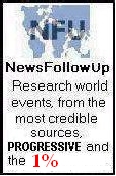
![]() = go to NFU pages
= go to NFU pages![]() By
Rudo de Ruijter, Netherlands,
By
Rudo de Ruijter, Netherlands,
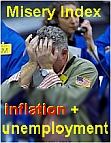

 Citigroup,
off balance sheet, SIV, 'legal' fraud.
Citigroup,
off balance sheet, SIV, 'legal' fraud. 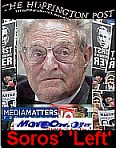

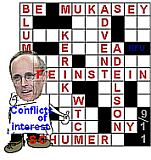
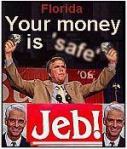 'Your
money is 'safe', 'the bank is 'open'.
'Your
money is 'safe', 'the bank is 'open'. Conservative
Republicans, Bush has killed the Republican brand name
Conservative
Republicans, Bush has killed the Republican brand name

